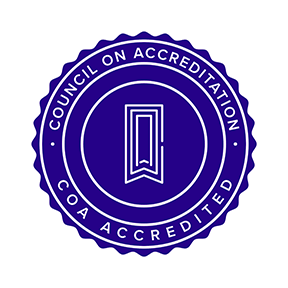
 Abused and neglected children face trauma beyond what we can physically see. Studies show that the psychological effects of physical and emotional trauma can be long-lasting and can even lead to suicide if left untreated.
Abused and neglected children face trauma beyond what we can physically see. Studies show that the psychological effects of physical and emotional trauma can be long-lasting and can even lead to suicide if left untreated.
Trinity Youth Services is dedicated to the health and well-being of abused and neglected children. Our passion is improving the lives of children who have endured abuse, and to help them transcend the harrowing statistics that often plague them.
According to the Children’s Bureau, some effects of child abuse can include depression and anxiety, which can lead to smoking, alcoholism, drug use or overeating. Long-term physical health problems, such as cancer and obesity also threaten this vulnerable population of children. The physical remnants of abuse and neglect often heal, but very often, the psychological effects require specialized attention.
To combat this devastating, widespread issue, Trinity Youth Services has contracted with the Los Angeles County Department of Mental Health, the San Bernardino County Department of Behavioral Health and the Riverside County Behavioral Health System to provide an array of mental health services. Answering the call of children in crisis, Trinity Youth Services offers individual and family therapy, medication support, therapeutic behavioral services and in-home behavioral support with an emphasis on trauma-informed interventions.
At Trinity Youth Services, each foster child is given specific tools they need to thrive mentally, physically and emotionally from caring, trusted and experienced mental health experts. Every foster child receives a comprehensive assessment upon admission into our resource homes and for those who meet criteria, receive individual therapy on a weekly basis by a qualified therapist.
Trinity Youth Services also offers three other evidence-based practices focused on complex mental health issues. Seeking safety is a trauma-informed model of therapy that addresses alternative functional coping skills. Trauma focused cognitive behavior therapy addresses the bio-psychosocial needs of the child in an individual and conjoint setting. Managing and adapting practice is an approach to therapy that uses multiple treatment modalities that are implemented on an individualized basis.
In addition to our mental health programs and treatment modalities, Trinity Youth Services practices trauma-informed intervention to enable foster children to feel respected, informed and connected with an aim to instill hope and empowerment in a sensitive non-judgmental manner. With over 60,000 children served since its inception, Trinity Youth Services continues to create and maintain supportive programs for foster youth that will help them increase their confidence, essential social skills and achieve a positive self-identity.
Why do foster children need ongoing mental health support?
According to Psych Central, some foster children may exhibit behavioral disorders and learning challenges. These youth need special mental health services because they need to feel confident about themselves, feel respected, safe and understood. They need to learn how to cope after the trauma they have experience in a way that isn’t harmful.
Trinity Youth Services’ mental health services help create a better future for foster children because they assist them in creating an understanding of what they went through, develop their self-esteem and help them learn to cope in positive ways by building hope for their future and trust within their relationships.
Trinity also conducts child and family team meetings, at which the child and their resource family are encouraged to be the experts in their own lives. It is a team approach to helping foster children that includes social workers, therapists, resource parents and others involved in their well-being. The foster child is given a voice and a choice in their treatment and to recognize what they are good at and what they need in order to thrive.
Trinity Youth Services also employs interventions, which have been shown to be very effective in decreasing emotional or behavioral problems, lessening depression and anxiety, improving physical health and healthy attachments. These mental health interventions can also improve a foster child’s skill development, education and employment.
At Trinity Youth Services, we take pride in our commitment to help children and families create a better future. It all starts with supporting our foster youth and helping them live successful, fulfilled lives.
Click here for more information about Trinity Youth Services programs.
 Jackie Jakob, Foster Care and Adoptions Director
Jackie Jakob, Foster Care and Adoptions Director
Having over 20 years’ experience, Jackie currently oversees Trinity Youth Services’ operations of foster care and adoptions programs throughout Southern California and in Houston, Texas. She received a bachelor’s degree in law and society from University of California Santa Barbara, a master’s degree in social work from California State University Long Beach and recently became a Licensed Clinical Social Worker. Jackie enjoys spending time with her husband and two children attending various baseball, softball and judo meets. She is on the parent board for a judo dojo and is one of the troop leaders for her daughter’s Girl Scout troop. Additionally, she really enjoys running half marathons and aims to run 4 to 5 races each year.
Tel: 909.825.5588 | Email: info@trinityys.org





